
Kevin Elliott is a Marketing Manager for NiceJob, a platform that helps businesses collect and share customer reviews to improve their reputation and leverage it to increase sales and drive growth. He enjoys writing about business tips, workflow management, digital marketing, and customer experience. He has a cute puppy named Karl.
SaaS businesses and B2B sellers face unique challenges across the business landscape. You have to deal with long sales cycles and supposedly fickle buyers with multiple stakeholders who need to comply with internal policies—barriers unknown to many small, B2C businesses. But it’s exactly these circumstances that make tried-and-true techniques from consumer marketing so valuable for SaaS brands.
Think about it – getting a lead to book a demo or convert on a landing page, let alone actually buy, ultimately comes down to one thing: trust. In other words, are you a trustworthy brand?
All buyers, at the end of the day, are human. B2B buyers of enterprise software carefully evaluate SaaS providers for a reason: they want to feel like they can trust you. And there’s no better indicator of trust than leveraging social proof – the act of using client data, feedback, reviews, or sentiments – to your advantage to gain the trust of leads. So it’s no surprise that social proof is incredibly valuable to B2B companies.
Clearbit – one of the world’s largest marketing-data companies – added a testimonial to their landing pages and increased conversions by 84%!
In this Process Street article, you will learn all about what social proof is, what its benefits are, and some examples of social proof for SaaS businesses to help your company take off to new heights!
- So what is “social proof” exactly?
- The benefits of social proof marketing for SaaS companies
- 4 tips to jumpstart your social proof marketing strategy
So what is “social proof” exactly?
Social proof is a concept from business psychology about the idea of motivating people to take action based on the opinions of others. Coined by marketing psychologist Robert Cialdini in Influence: The Psychology of Persuasion, social proof is the “proof” of your clients’ satisfaction to show how awesome your business is.
This proof comes not from head office or your marketing department, but directly from the social beehive of your clients (hence: social proof).
Social proof can take the form of community awards, certifications, client-retention rates, reviews, testimonials — anything that legitimizes your company from a reliable, external source. And it works like a charm for SaaS brands. Consider what’s at the heart of referral marketing — a client recommending you to one of their industry colleagues is a prime example of social proof.
How important is social proof? Let’s look at the following data:
- On average, potential customers of ecommerce products trust reviews 12 times more than a company’s own marketing copy.
- Over 92% of B2B leads are more likely to buy than not if they read a trusted review.
- About 90% of leads value reviews more than anything a salesperson can say.
So, how can social proof specifically benefit your company?
The benefits of social proof marketing for SaaS companies
For B2B SaaS companies, successful top-of-funnel marketing often comes down to basic principles of human psychology that work for all types of marketing.
When potential leads navigate your website, a lot of them probably aren’t in buy-now mode and are still becoming familiar with your brand. You need to educate and inspire your website visitors to convert them into leads, whether that be via a demo request, a whitepaper download, or – fingers crossed – a trial signup.
Social proof is designed to improve website conversion rates by instilling trust and showing your website visitors that your services are reliable. It comes down to what collateral you provide to strike an emotional chord with your leads so they believe in you and in what you’re selling.
So let’s take a look at how SaaS businesses can benefit from social proof.
1. Validate decisions for leads
Social proof works so well because it provides leads with peace of mind. Imagine you’re a prospective buyer of, say, a sales-enablement software, so you look for a CRM provider.
When you search on software directory websites for “CRM tool,” will you be more likely to contact the company at the top with glowing praise from past clients or one with no reviews?
You likely already know the answer to this question because it’s intuitive. In fact, 84% of people trust social proof more than anything else.
If you can validate a potential client’s inclination to pick your company over the competition, you’re already halfway towards booking your next demo!
2. Identify your target audience
One of the biggest hurdles businesses face is how to hone in on their target audience with their marketing materials. It’s easy to go after whole industries, but as you scale and your competition becomes more refined, how can you cater to specific demographics, positions, or pain points?
Social proof shows potential clients that you could be a good match for them. That’s because social proof reassures leads that your satisfied clients are people just like them. Those who respond to your social-proof marketing will be your company’s bread & butter and will give your SaaS business valuable client data about the kinds of audiences to target.
3. Increase sales and conversion rates
Simply put, social proof marketing is a tool in a SaaS company’s arsenal to effectively increase sales and improve website conversion rates of visitors to leads.
Social proof enables websites to become more visible on search engines and to boost engagement metrics due to more form submissions and Google reviews. Once leads come to your company website, the social proof you show off promotes the business and encourages more visitors to submit their contact info.
4. Improve the client experience
Social proof not only directly contributes to better conversion rates by imploring potential clients to not miss out on your services; it tells them that you care, too. The very act of sharing reviews and testimonials with future clients demonstrates that you value what your existing ones have to say.
Sharing social proof nurtures loyalty and instills a positive feeling for the client experience as it signals to your website or social visitors that you’ll value them. When leads already feel like they’ll be cared for before you even service them, they’ll be more likely to report a positive experience after they sign up too.
4 tips to jumpstart your social proof marketing strategy
Now that we’ve gone over the benefits of social proof, how do you start incorporating social proof into your company’s marketing strategies?
There are lots of examples of social proof available, so let’s cover some of the main ones so you can get a sense of how to best use social proof for your business!
1. Share reviews on your website
A classic example of using social proof is to show off your client reviews on your website. As soon as website visitors see those positive 5-star reviews, you can be sure that those “Book a Demo” button clicks will start to skyrocket!
Take a look at this website for the payment-processing software provider, Paystone:
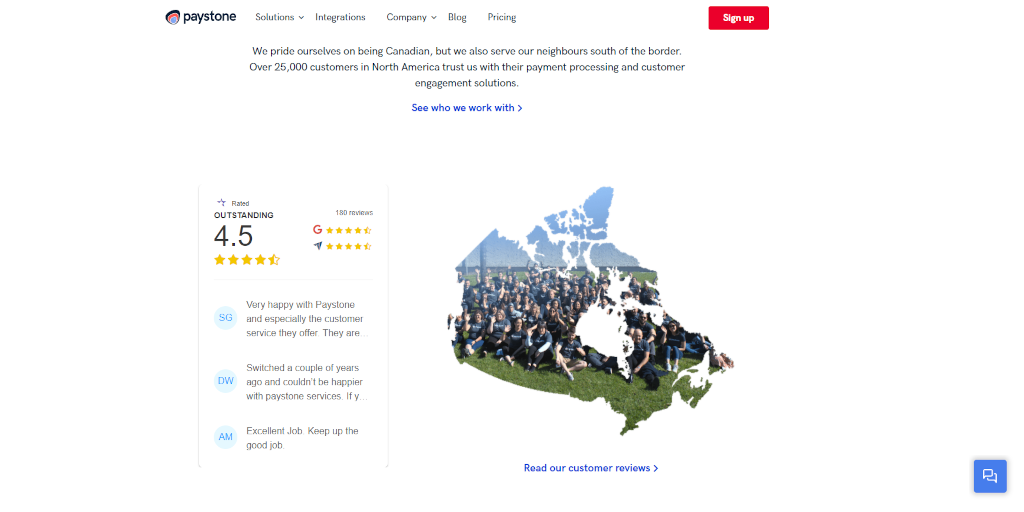
They’ve not so subtly placed a widget on their website to show off Capterra and Google reviews from clients to promote how satisfied their users are. Customer reviews build trust. They’re the most ostensible way to demonstrate to leads that they can trust you because other people like them already do.
And as reinforcement, Paystone placed a more discreet widget on their website for reviews to pop up in the corner of the screen in real-time so website visitors can’t miss anything!
2. Show off stories about your clients
Case studies are a proven form of social proof, but classic iterations that include downloadables or gated content can be burdensome for modern buyers.
Creating sections on your site for success stories formatted as digestible landing pages or blog posts, as the accelerator Traction on Demand has done, can set you apart.
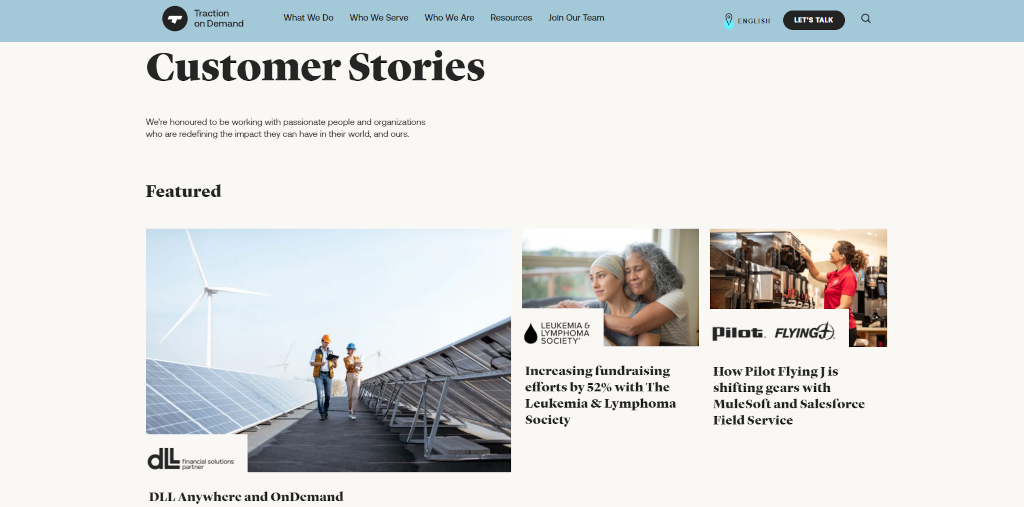
To highlight stories on your landing page without diluting customers’ focus on the product, showcase your top clients’ logos or brief quotes to provide instant credibility. You can even take customer testimonials to social media by creating micro-stories to share with your followers.
3. Promote certifications and industry reports
Not all social proof has to come from clients. Demonstrating your reputation to increase conversions can be as simple as promoting certifications or endorsements from industry reports. At a high level, the effect is the same as showing off reviews and it gives an extra sense of security to website visitors when deciding which company to choose.
For example, LoginRadius, which sells a SaaS platform for managing customer identities, proudly displays on their homepage third-party industry reports that endorse them:
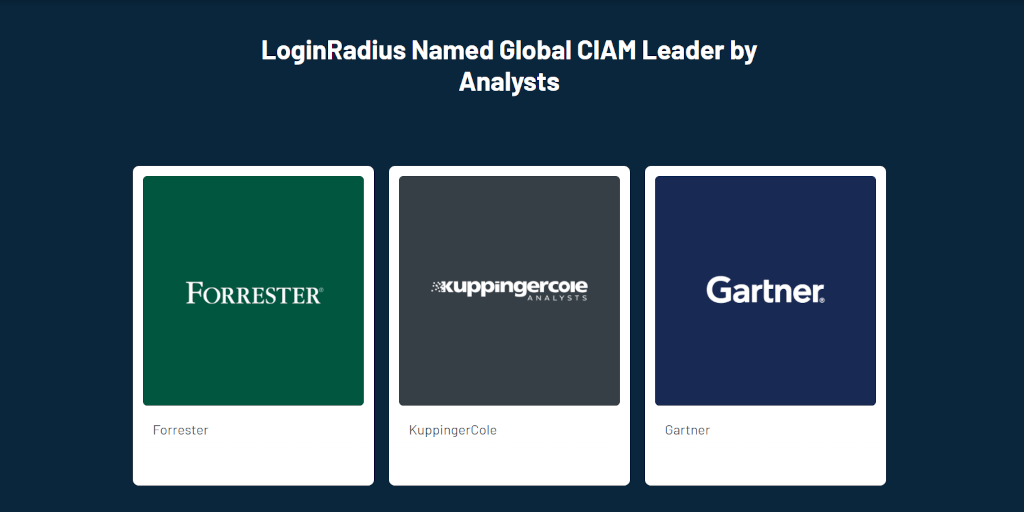
And not to be outdone, 2Checkout, a service for digital monetization, made a whole page for exhibiting both their awards and certifications so they can gain the trust of their web visitors:
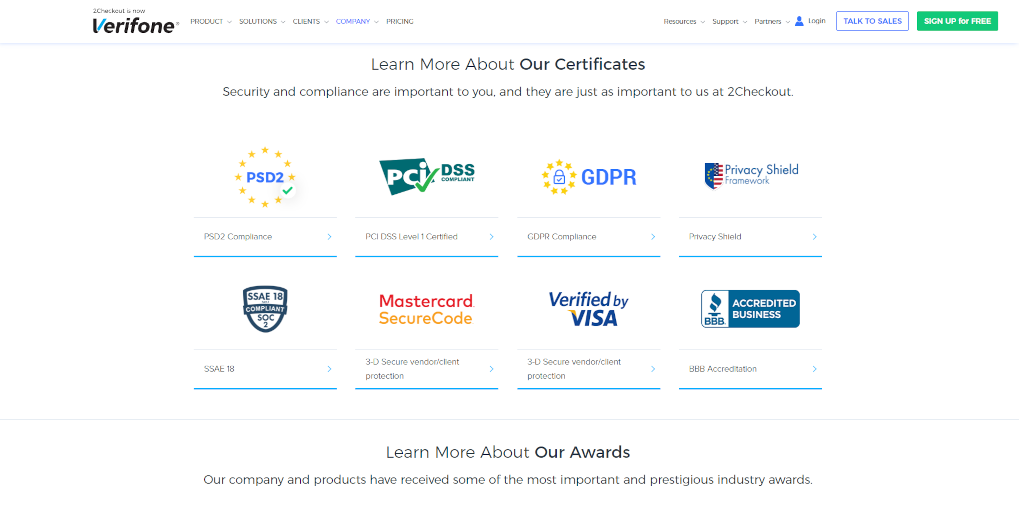
4. Leverage client data
Last but not least, perhaps the simplest way to communicate social proof is to advertize client data such as adoption or retention rates.
Ever drive by a McDonald’s and notice how their signs say, “Over 100 Billion Burgers Sold”? (Of course, now that they’re closer to 500 billion, some signs just say “Billions and Billions Sold!”)
That’s because people subconsciously associate popularity with reliability. It’s a principle that works, not just for restaurants or consumer products, but for B2B companies as well.
The communications platform Twilio drops hints about their reliability with client data right on their website:
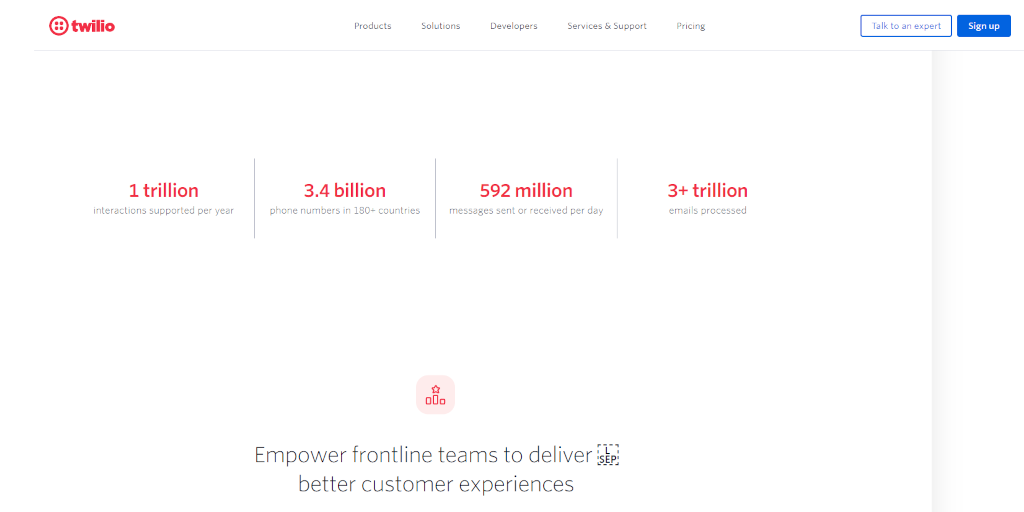
Also, don’t be shy about sharing your success! Posting your milestones on social media is a great way to boost engagement.
Key takeaways on social proof marketing strategies
Social proof is an excellent marketing tactic for SaaS and B2B brands to promote themselves to new clients. It relies on basic human psychology and is therefore almost foolproof!
Whether you share certifications, data, reviews, or stories, social proof is an easy way to grow your sales, improve referral-marketing metrics and increase website conversions.
What’s your go-to method for social proof marketing? Let us know in the comments!







 Workflows
Workflows Forms
Forms Data Sets
Data Sets Pages
Pages Process AI
Process AI Automations
Automations Analytics
Analytics Apps
Apps Integrations
Integrations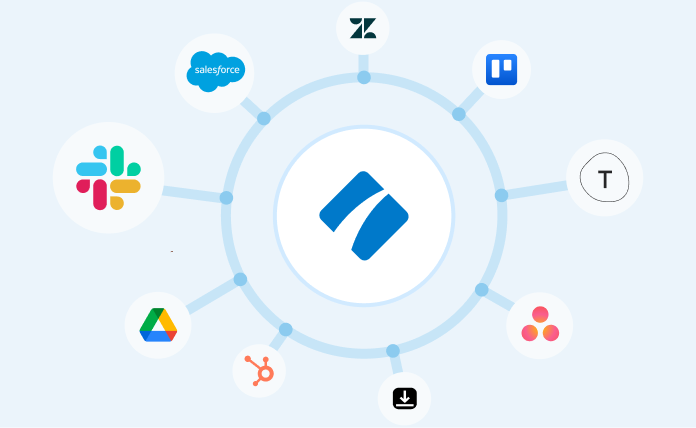
 Property management
Property management
 Human resources
Human resources
 Customer management
Customer management
 Information technology
Information technology



Leks Drakos
Leks Drakos, Ph.D. is a rogue academic with a PhD from the University of Kent (Paris and Canterbury). Research interests include HR, DEIA, contemporary culture, post-apocalyptica, and monster studies. Twitter: @leksikality [he/him]